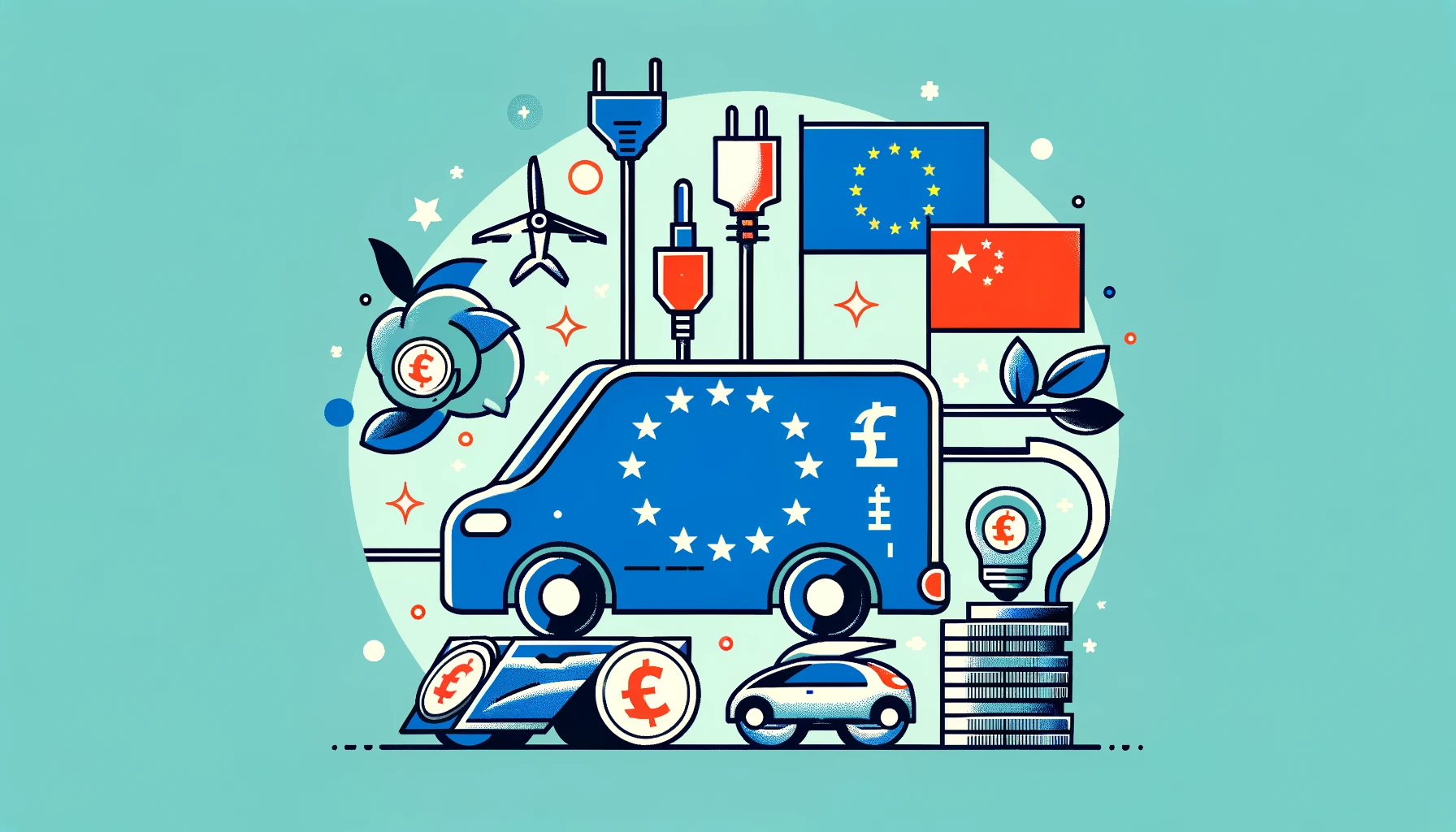
European Union tariffs on Chinese electric vehicles (EVs) could significantly impact Beijing, potentially costing nearly US$4 billion in trade with the bloc, according to a new analysis by Germany’s Kiel Institute for the World Economy. The institute’s study projects that the number of Chinese EVs imported to the EU would drop by a quarter, approximately 125,000 vehicles, if Brussels were to impose a 20% import tariff. In contrast, sales of locally produced vehicles would likely rise by almost the same amount, illustrating the direct impact of such trade measures.
The threat of a widening trade conflict is intensifying tensions between the EU and China ahead of the impending tariff decision. Under the leadership of President Ursula von der Leyen, the European Commission has initiated several trade probes against Beijing, focusing on allegations of anti-dumping and unfair subsidies, particularly within the clean-technology sector. The EU must notify Chinese exporters by early June if it plans to impose tariffs on their EVs, detailing the specific tariff rates. These measures could be implemented as soon as July.
Potential Impacts of EU Tariffs on Chinese EVs
| Aspect | Expected Impact |
|---|---|
| Reduction in Chinese EV imports | 25% (approximately 125,000 vehicles) |
| Increase in locally produced EV sales | Similar to the reduction in Chinese imports |
| Financial loss for China | Nearly US$4 billion (RM18.8 billion) in trade |
| Potential consumer price increase | Higher prices for EVs due to costlier European production |
The European Commission’s trade actions reflect a strategic shift aimed at protecting European interests. German Foreign Minister Annalena Baerbock highlighted the importance of this protective stance, drawing parallels with Germany’s previous dependence on Russian energy. In an interview with Handelsblatt newspaper, Baerbock stated, “I don’t want to be brutally confronted a second time with others taking advantage of our naivety. We have to protect our interests.”
The Kiel Institute’s study does not account for potential retaliatory measures from China, which are anticipated. The exact tariff level the EU might impose remains uncertain. Beijing has signaled its readiness to impose tariffs as high as 25% on imported cars with large engines, which would significantly affect luxury brands such as Mercedes-Benz Group AG and BMW AG.
- Potential Retaliation: China may retaliate with up to 25% tariffs on large-engine imports, affecting European luxury carmakers.
- Price Increase for Consumers: Consumers in the EU could face higher prices for EVs due to more expensive European production.
- Impact on EV Transition: Higher EV prices could slow the EU’s transition to electric vehicles, particularly affecting low-income citizens.
- Future Prospects for Chinese Manufacturers: Chinese companies like BYD could still meet local demand by establishing production facilities in Europe.
Consumers are likely to experience increased prices for EVs as a consequence of any tariffs. The institute highlighted that European production costs are significantly higher, which would directly translate into higher prices for consumers. This price hike could impede the EU’s shift to EVs, especially as the bloc aims to phase out new combustion-engine car sales by 2035. Ensuring affordability of battery-powered alternatives for low-income citizens, particularly in southern and eastern member states, remains a critical challenge.
BYD Co., a major Chinese EV manufacturer, plans to establish production facilities in Europe. The company has announced its intention to introduce its US$10,000 Seagull hatchback to the European market next year. This move could mitigate some impacts of the tariffs by providing more affordable EV options manufactured within Europe.
Trade researcher Julian Hinz from the Kiel Institute commented on the situation, stating, “It is by no means a foregone conclusion that European car manufacturers will fill the gap. Chinese manufacturers such as BYD could also meet local demand with new plants in Europe.”
The ongoing developments underscore a complex interplay of strategic and economic considerations. The EU’s efforts to safeguard its industries and technological advancements through protective tariffs are met with significant economic risks, including retaliatory actions from China and potential disruptions in the EV market.
Moreover, the broader implications of such trade conflicts extend beyond immediate financial impacts. They highlight the need for a balanced approach that considers both the protection of domestic industries and the broader goal of transitioning to sustainable energy sources. The EU’s commitment to reducing carbon emissions and fostering a green economy requires careful navigation of these trade dynamics to ensure that policy measures do not inadvertently hinder progress.
As the EU deliberates on imposing tariffs on Chinese EVs, the potential repercussions are multifaceted, affecting trade relations, market dynamics, and consumer prices. The Kiel Institute’s analysis provides a snapshot of the immediate impacts, but the full scope of the consequences will depend on the subsequent actions taken by both the EU and China. Ensuring a strategic balance that protects European interests while fostering a competitive and sustainable EV market remains a critical challenge for policymakers.
The situation continues to evolve, with key decisions expected in the coming weeks that will shape the future of the EU-China trade relationship and the global EV market. As stakeholders await further developments, the focus remains on achieving a resolution that supports the transition to a sustainable and equitable automotive industry.
Related News:
Featured Image courtesy of DALL-E by ChatGPT
